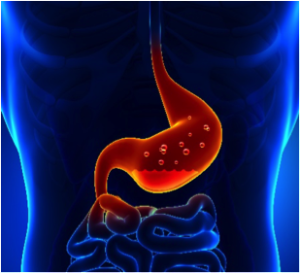Better Be Safe Than Sorry!
by Dr. Steven Schwaitzberg and Dr. Alan Posner
Heartburn is a common condition affecting 60 million American daily. Heartburn comes in many forms, including gastro-esophageal reflux disease (GERD), regurgitation of food, or even irritations of the throat leading to loss of voice or pulmonary symptoms. Although common, heartburn is not entirely benign. Those who experience reflux, particularly at night, are prone to interrupted sleep leading to loss of *productivity and tiredness.
While most people do well with over the counter antacids or medications, these medications are not without risks or side effects, and are generally not intended for prolonged or consistent high-dose use. Side effects can include headache, abdominal pain, diarrhea, bone loss and elimination of the important acid stomach functions.
Despite the festivities of the season, when heartburn may be a more common occurrence, it is important to realize that persistent heartburn may be a symptom of a more serious condition, such as esophageal cancer, precancerous conditions, esophagitis or other diseases entirely. Esophageal cancer is one of the fastest growing cancers in men over the age of 55 with GERD. Therefore, masking persistent symptoms with over-the-counter or prescribed medication without a proper evaluation of the esophagus could lead to overlooking an important cancer or pre-cancer diagnosis.
The good news is that many lives can be saved by understanding risk factors for more serious conditions, and obtaining a proper evaluation of the esophagus. Patients who should seek an evaluation for heartburn, GERD, and/or regurgitation if the following conditions exist:
*Ongoing symptoms despite taking medication twice daily;
*Symptoms return after taking medication twice daily for six months;
*Symptoms return after twice daily medications are stopped;
*Being advised by a dentist of loss of tooth enamel due to reflux;
*Waking up in the morning with a very sour taste in the throat consistently;
*Previously undergone a successful surgical procedure for reflux but now experience new symptoms
What is a reflux evaluation and what can patients expect? During your evaluation the GERD specialist will carefully review the history of your problem and perform an appropriate physical examination. An evaluation of your esophagus by x-ray or endoscopy may be required. If severe reflux is suspected further studies to measure how much acid your esophagus is exposed to and how well your esophagus works may be needed.
Will I need surgery? Many patients can be successfully treated on medical regimens alone aimed at meeting their needs. For patients with mild to moderate reflux, endoscopic procedures can be performed that may help symptoms and eliminate the need for medical therapy. The most severe cases are often treated with minimally invasive surgery techniques aimed at recreating the valve that is failing to prevent food and acid from entering the esophagus.
About the Authors:
Dr. Steven D. Schwaitzberg is Professor and Chairman of the Department of Surgery at University at Buffalo Jacobs School of Medicine and Biomedical Sciences. Dr. Alan Posner is a Clinical Assistant Professor. Both physicians practice at UBMD Surgery, and are trained to diagnose and treat severe heartburn, gastro-esophageal reflux disease, regurgitation, and related disorders. Call 716-859-2268 for an evaluation.












